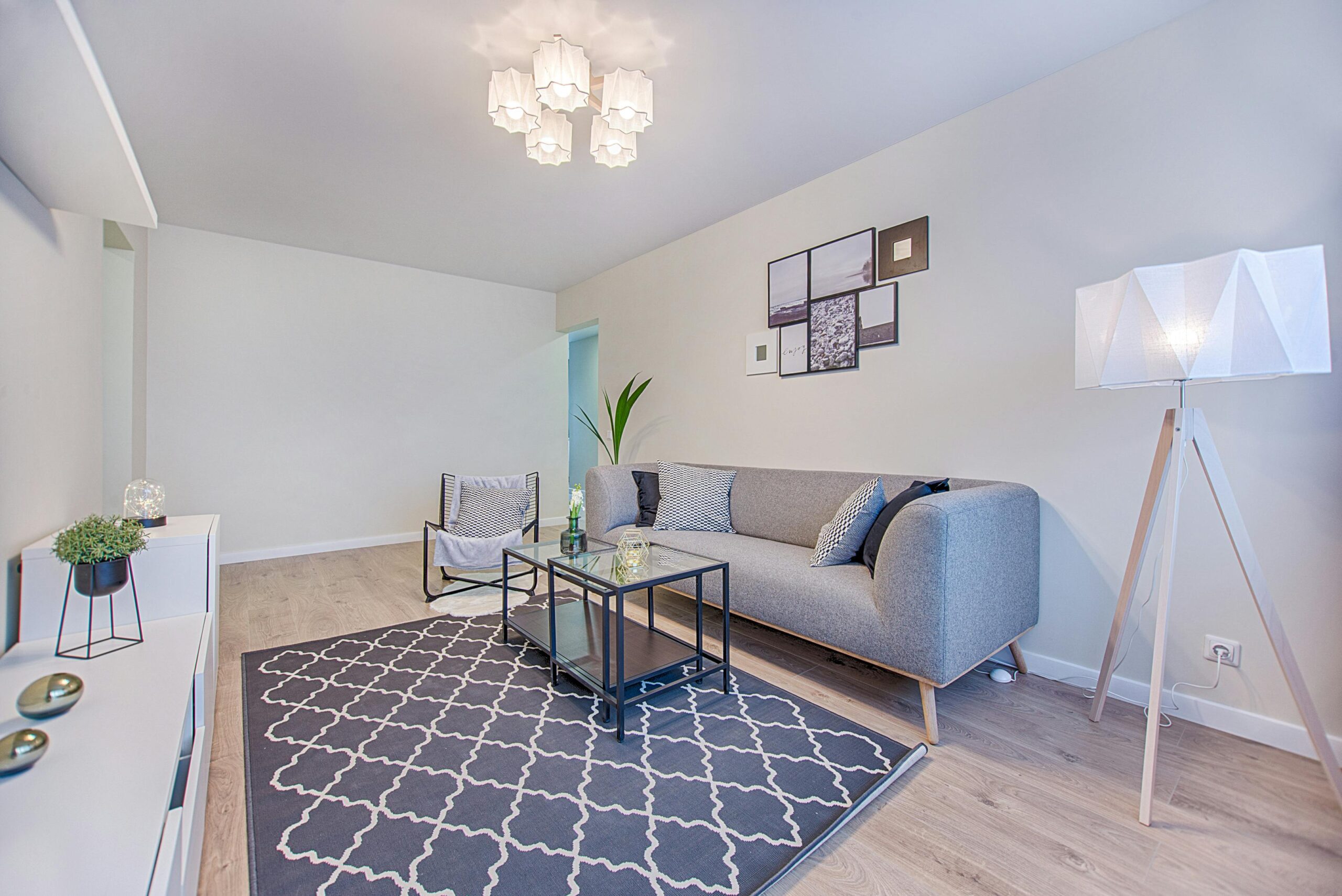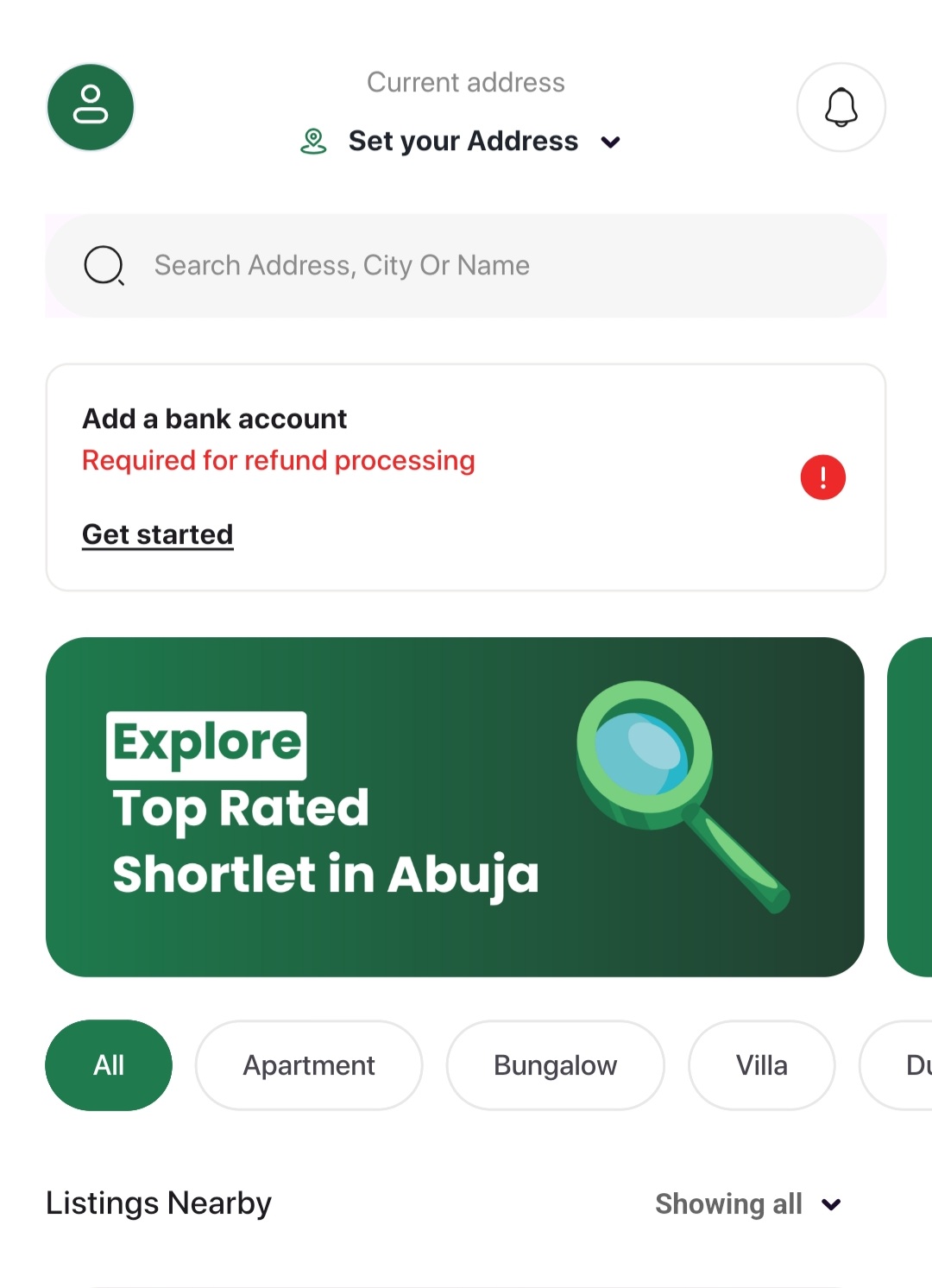Abuja, Nigeria’s capital city, is a hub for travellers, diplomats, and foreign visitors.
With its growing economy and political significance, many foreigners find themselves needing accommodation, whether for short visits or extended stays.
However, renting an apartment in Abuja as a foreigner can be a unique experience, especially if you’re unfamiliar with the local real estate market.
In this guide, we’ll walk you through everything you need to know about renting an apartment in Abuja as a foreigner. We’ll cover finding the right property, the rental process, the documentation required, and some tips to ensure a smooth experience.
1. Types of Apartments in Abuja

As a foreigner in Abuja, you’ll find various types of apartments to choose from, depending on your budget, needs, and length of stay. These range from high-end serviced apartments to affordable flats in different parts of the city.
- Luxury Apartments: Typically located in upscale neighborhoods such as Maitama, Asokoro, and Wuse 2, luxury apartments offer premium amenities like gyms, swimming pools, and 24-hour security. These are ideal for expatriates and diplomats who prefer a high standard of living.
- Serviced Apartments: For foreigners staying in Abuja temporarily, serviced apartments are a popular option. They come fully furnished with services like housekeeping, laundry, and sometimes even meal delivery. These are often found in central areas like Garki and Jabi.
- Regular Flats: If you’re staying long-term and want a more affordable option, you can rent a regular apartment in residential areas like Gwarinpa, Kubwa, or Lugbe. These areas are further from the city center but offer more budget-friendly rent options.
Abuja House has a wide range of short let apartments, from luxurious to budget-friendly, all available for rent. You can browse these options directly through their mobile app for short term stays.
2. Finding an Apartment
As a foreigner, finding the right apartment in Abuja may seem daunting, but it’s much easier when you know where to look. Some of the most common methods include:
- Real Estate Agents: Many foreigners rely on local real estate agents to help them find suitable accommodation. However, dealing with agents can come with high fees and sometimes unreliable listings.
- Online Platforms: To avoid the hassle of middlemen, you can use trusted online platforms like Abuja House, where you’ll find verified listings for shortlets, and hotels. The platform also allows you to filter properties by price, location, and amenities, making your search convenient.
- Word of Mouth: Some expatriates also find housing through their networks or local contacts. However, this can be limiting if you’re new to the city and don’t have a broad network.
3. Understanding Abuja’s Rental Market
Before diving into the rental process, it’s crucial to understand some key elements of Abuja’s rental market:
- Annual vs. Monthly Rent: Unlike many countries where rent is paid monthly, in Abuja (and Nigeria in general), landlords usually require tenants to pay one year’s rent upfront. In some cases, especially with higher-end properties, they might ask for two years of rent.
- Security Deposit: In addition to the annual rent, landlords usually request a security deposit, which can range from one to three months’ rent. This deposit is refundable at the end of your stay, provided the property remains in good condition.
- Service Charges: If you’re renting an apartment in a serviced building, there may be additional service charges covering amenities like security, maintenance, and utilities. Make sure to clarify what’s included in the rent and what extra fees apply.
- Legal Fees: Some landlords also expect tenants to cover legal fees for drafting the lease agreement. This is another cost to factor into your budget.
Rent an Apartment in Abuja as a Foreigner

- Set a Budget & Choose Location
Decide how much you’re willing to spend and pick a suitable neighborhood. Expat-friendly areas like Maitama, Asokoro, and Wuse are pricier, while places like Gwarinpa are more affordable
- Work with a Trusted Real Estate Agent
Since many properties aren’t listed online, you’ll need a reputable real estate agent. Ask for recommendations or rely on local contacts to avoid scams.
- Prepare Necessary Documents
As a foreigner, you’ll need your passport or residence permit, proof of employment or financial stability, and possibly reference letters to assure landlords of your credibility.
- Understand Rent Payment Structure
Abuja landlords often ask for 1 to 2 years’ rent upfront. also, clarify if there are service charges for amenities, especially in serviced apartments.
- Inspect the Property
Visit the apartment to check its condition, water supply, power, and neighborhood security. If you can’t visit, have a trusted local inspect it for you.
- Negotiate & Sign a Tenancy Agreement
Negotiate rent terms (some landlords may accept 6-month payments). Make sure the tenancy agreement clearly states your responsibilities and have it reviewed by a lawyer if needed
How to rent a Short Let apartment or Hotel in Abuja as a Foreigner
Renting a shortlet apartment or hotel in Abuja as a foreigner involves a few key steps:
Step 1: Search for short let Apartments or hotel

start by identifying the type of accommodation that suits your stay—whether you prefer a serviced shortlet apartment for privacy or a hotel for convenience.
With the Abuja House mobile app, you can browse through verified listings based on your budget, location, and preferences.
You’ll find options in prime areas like Maitama, Asokoro, and Wuse, as well as more affordable choices in Gwarinpa, Jabi, and Garki.
Step 2: Schedule a Viewing or Virtual Tour
If you’re already in Abuja, it’s advisable to schedule a physical viewing. This allows you to inspect the apartment or hotel room before committing.
However, if you’re not yet in the country, Abuja House offers quality pictures and images of the property so you can explore the accommodation remotely through their mobile app.
Step 3: Book Your Stay
Once you’ve found a shortlet apartment or hotel that fits your needs, the next step is to book it.
The app streamlines the booking process, allowing you to secure your accommodation in just a few clicks. For shortlets, you’ll typically need to book by the day, week, or month, while hotels may have more flexible daily rates.
Step 4: Payment
For shortlets and hotels alike, payment is straightforward. On Abuja House, you can make secure online payments directly through the mobile app, minimizing the risks of fraud.
You’ll also be able to see a breakdown of all costs upfront, ensuring full transparency.
Step 5: Move In or Check-In
Once the booking is confirmed and payment is processed, you can check into your hotel or move into your shortlet apartment at the agreed-upon date.
5. Documents Required
As a foreigner, you’ll need to provide certain documents when renting an apartment in Abuja. These typically include:
- Passport and Visa: A valid passport and visa proving your legal stay in Nigeria.
- Work Permit: If you’re in Abuja for work, your employer may need to provide a work permit as proof of employment.
- Proof of Income: Some landlords request proof of income or employment, especially for long-term rentals.
- References: In some cases, landlords may ask for references, either from previous landlords or your employer (Though not common).
Tip: Make sure to have these documents ready to speed up the rental process.
6. Tips for a Smooth Rental Experience
- Work with Verified Platforms: Avoid scams by using trusted platforms like Abuja House to find verified listings and streamline the rental process.
- Understand Local Customs: Knowing the norms around rent payments, deposits, and services in Abuja will prevent misunderstandings.
- Plan for Utilities: Depending on the rental, you may need to set up utilities such as electricity and internet. Make sure to clarify this with your landlord beforehand.
Why Use Abuja House to Rent a shortlet Apartment or hotel?
Abuja House is the go-to platform for finding apartments, shortlets, and hotels in Abuja. Whether you’re staying at a shortlet or an hotel, the Abuja House mobile app offers a seamless and secure way to book accommodations.
- Verified Listings: Every shortlets and hotel apartment is verified, so you know you’re getting a legitimate deal.
- Easy Booking: The mobile app allows you to search, compare, and book apartments with just a few taps.
- Flexible Options: Whether you need a short-term stay or a long-term rental, Abuja House has a variety of listings to suit your needs.
- Secure Payment: Make secure payments through the platform, avoiding the risk of scams or fraud.
Conclusion
Renting an apartment in Abuja as a foreigner doesn’t have to be complicated. By understanding the local rental market, knowing the steps involved, and using a reliable platform like Abuja House, you can find the perfect apartment that suits your needs.
For a seamless experience, download the Abuja House mobile app on Android or iOS to start your apartment search today

Leave a Reply